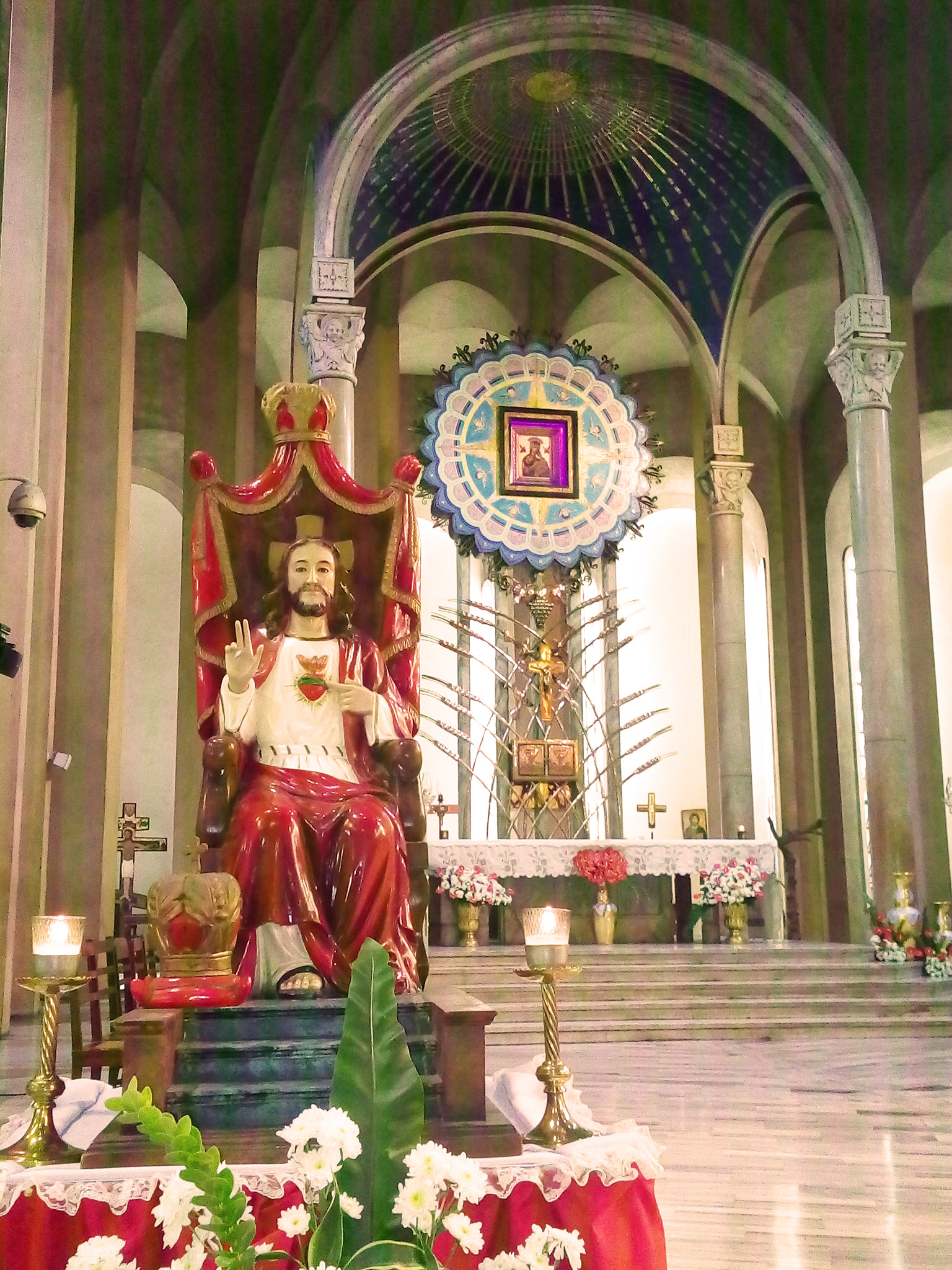On this last Sunday of the Liturgical Year, the church celebrates all over the world the Feast of Christ the King. It was Pope Pius XI who instituted the feast in 1925. The Pope’s intention was to set Christ’s reign against totalitarian ideologies in the ‘Thirties. The Feast has become a reminder and counter-symbol to the totalitarian governments of Mussolini, Hitler and Stalin. Today, more than ever, we need to celebrate and proclaim Christ as King amidst the rise of strongman and authoritarian rulers in many parts of the world.

In any era of history, kingship is always associated with power, prestige, and wealth. In proclaiming Jesus Christ as king, the church presents the kingship of Jesus and the kingdom he inaugurated as diametrically opposite to having power, wealth and influence. Jesus kingship is all about sacrifice, humility and service.
Jesus’ anti-king of earthly nature is reflected in our readings today. The second reading, for example, proclaims that Jesus kingship is borne out of his suffering and death for our sakes
To him who loves us and has freed us from our sins by his blood,
who has made us into a kingdom, priests for his God and Father,
The Gospel presents Christ the King on trial who is about to suffer and die. As we all know, the Jews accused Jesus of blasphemy for claiming to be God, and they wanted him to die by the most shameful and painful death, Roman execution. Hence, they brought Jesus before Pilate the Roman governor and accused Jesus of causing sedition against the Roman Empire and Caesar. “We found this man inciting our people to revolt, opposing payment of the tribute to Caesar, and claiming to be Christ, a king” (Lk 23:2). Today’s Gospel presents the first part of the trial conducted by Pilate who questions Jesus about his kingship. In his dialogue with Pilate, Jesus implies that Pilate does not understand the spiritual or transcendent nature of Jesus’ kingship (“My Kingdom does not belong to this world”). Jesus admits that he is a king but declares that his Kingdom is not of this world. Neither his present nor his future reign operates according to the world’s criteria of power and dominance. Jesus’ Kingdom, the reign of God, is based on the beatitudes, and he rules through loving service rather than through domination. His authority is rooted in truth, not in physical force.
Pilate knew that Jesus was not guilty but chose political expediency over truth. In the end, it was Pilate who was in trial. And history judged him harshly. Jesus did not succumb to the mockery of Pilate and the Jews but at a high cost–his suffering and death on the cross.
Today as we celebrate Jesus as king, we are reminded of the sacrificial nature of Jesus as king and the radical social demands of belonging to his kingdom. If, indeed, we honor Jesus as king, we need to follow Jesus in standing against any use of power, influence and wealth to dominate over others. If, indeed, we honor Jesus as king, we need to follow Jesus in standing for the truth despite the prevalence of lies and systematic cover-up of truth. If, indeed, we honor Jesus as king, we need to follow Jesus in offering even our own lives so that God’s kingdom of love, peace and justice may prosper and prevail.
To celebrate Jesus as king unveils the important and permanent reality of tension of our earthly existence. Jesus’ response to Pilate unearths this tension between this world vs. Jesus’ kingdom.
“My kingdom does not belong to this world.
If my kingdom did belong to this world,
my attendants would be fighting
to keep me from being handed over to the Jews.
But as it is, my kingdom is not here.”
As followers of Christ we live in the tension of “being in this world but not of this world.” It is the tension of becoming a member of a new community under God and being a part of the ethnicities, nations, and families whose membership does not preclude unbelievers. The whole of the New Testament makes it clear that response to the reign of God and the kingship of Jesus has everything to do with how we live out our earthly citizenship—how we work, pay, buy, sell, and vote. We believe, however, that our final destiny goes beyond this world to a whole new world radically transformed through God’s dynamic and powerful grace. It is in that sense that Jesus’ kingship “does not belong to this world” and “is not here.”
In the midst of the rising influence and power of strongman and autocratic leaders today, proclaiming Jesus as King will incur persecution, character assassination even death from instruments of the system that breeds and sustains these strongmen and autocratic leaders. As Jesus as king suffered persecution and death, we who wish to be part of his kingdom, will not be exempted from the pain and sorrow of standing up for the blossoming of his kingdom. But fear not, the Holy Spirit, whom Jesus and God the Father has bestowed upon us, will give us the strength and guide us through the dark road of navigating the tension of being in this world while living God’s kingdom already here but not yet; only to be fully realized at the end of time.
Christ, perfect ruler, source of perfect peace and justice: reign now and forever over all peoples, languages, nations; over our hearts. Amen.